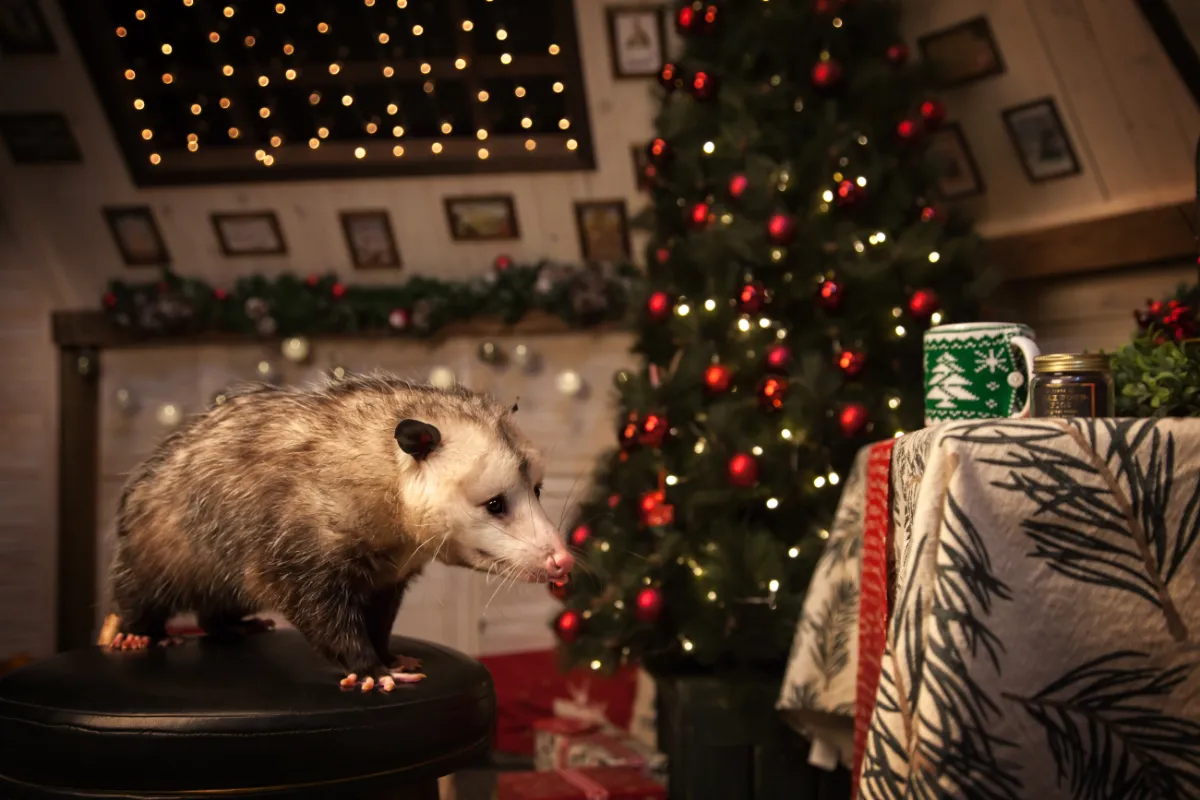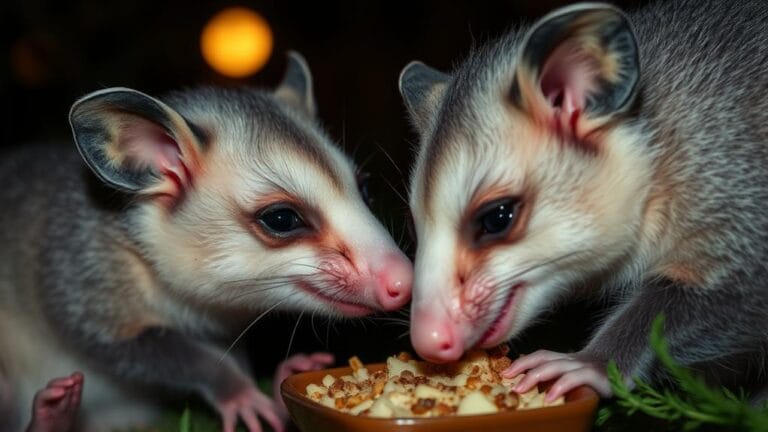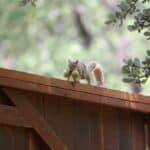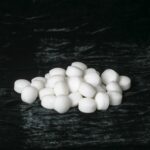Did you know that possums can cause thousands of dollars in damage to your property? These pests are notorious for tearing up gardens, entering attics, and rummaging through garbage cans. It’s no wonder that homeowners are eager to find ways to keep them away.
Mothballs are sometimes used to control wildlife, but are they effective in keeping possums and rodents away?
This article will examine whether or not mothballs work as a deterrent for possums and rodents and offer alternative solutions for dealing with these troublesome creatures.
Opossums are known for their tenacity and ability to adapt to different environments. They are also notorious for their attraction to human habitats and the damage they can cause.
If you’re struggling with an opossum infestation, you may wonder whether mothballs are a viable repellent solution for wildlife control and deterrents.
While mothballs may seem like a quick and easy wildlife control solution, it’s essential to understand their effectiveness as opossum deterrents and potential drawbacks as a repellent before using them.
In this article, we’ll delve into the theory behind using mothballs to repel opossums, explore alternative deterrents, and emphasize the importance of safety and the environment in wildlife control.
Understanding Possum Behavior
Table of Contents
So you’re dealing with opossums in your home or garden and wondering if mothballs can eliminate these animals. Still, before sprinkling them around your yard, it’s crucial to understand possum behavior.
Possums are nocturnal animals active at night and sleeping during the day. They have a varied diet that includes fruits, insects, small animals, and even garbage.
They prefer to live in wooded areas but have adapted to urban environments and can be found in attics, walls, and yards.
Possums, or opossums, are territorial animals that defend their home against other possums. During mating season, these animals become more active and may be seen wandering around during the day. They are also known for their ability to play dead when threatened, which can be a defense mechanism against predators.
Understanding possum behavior is essential when trying to deter them from your property. While mothballs may have a strong odor that can repel possums, it’s not a guaranteed solution for opossums or any other animal.
Exploring other methods, such as motion-activated sprinklers or non-lethal traps, is essential to remove possums from your property effectively.
Attractants and Habits
You might be surprised to learn that some regions of your yard or home could attract opossums an animal, and understanding their habits can help you deter them effectively.
Possums are omnivores who eat almost anything, including fruits, vegetables, insects, and small animals.
If you have a garden or fruit trees, pick up any fallen fruit or vegetables and secure your garbage cans to prevent possums or opossums from rummaging. They are also attracted to pet food left outside, so bring it in at night.
These creatures prefer to live in wooded areas and near water sources, but they can also make their homes in attics, sheds, and under decks. If you have any openings or gaps in your home’s exterior, seal them to prevent these animals from entering.
Possums are nocturnal and are active at night, so if you hear noises or sounds coming from your attic or walls, it may be a sign of a possum infestation. Possums breed in late winter or early spring, so if you notice any babies, it’s best to contact a licensed professional to remove them safely.
You can effectively deter them from your property by understanding possums’ diet, habitat preferences, noises and sounds, breeding habits, and nighttime behavior.
Dealing with Infestations
Suppose you’re dealing with an infestation of possums. In that case, contacting a licensed professional is essential to safely and effectively remove them from your property. Attempting to remove possums alone can be dangerous and may lead to further problems.
Professional pest control companies have the knowledge and experience to identify signs of infestation, prevent future infestations, and use humane removal methods. It’s important to consider legal considerations when dealing with possums.
Some lethal and non-lethal traps may be illegal in certain areas. In Australia, it’s illegal to relocate possums without a special permit. Working with a licensed professional ensures that all legal considerations are considered during removal.
Working with a professional pest control company saves time, avoids Harm to yourself and your property, and ensures the opossums are humanely and legally removed.
Active Ingredient in Mothballs
Knowing the harmful effects of camphor, it’s essential to be cautious when using mothballs as a possum deterrent.
Camphor, an active ingredient in mothballs, can be toxic to animals when ingested. If possums were to consume mothballs, they could experience symptoms such as vomiting, diarrhea, and seizures.
Additionally, mothballs can harm humans if they’re inhaled or ingested, and they can also hurt the environment. Due to mothballs’ potential health risks and environmental impact, it’s essential to consider alternative methods for deterring possums.
Some chemical alternatives to mothballs for opossum control include using ammonia or bleach. Still, these substances can also be harmful if not used properly.
Other options for opossum control include using natural repellents such as blood meal or specific food products, motion-activated sprinklers, or nonlethal traps.
By considering the effectiveness and safety of different possum deterrent methods, you can make an informed decision about dealing with an infestation on your property.
Theory Behind Using Mothballs
Understanding the theory behind using mothballs as a possum deterrent can help you decide whether or not to use this method.
Mothballs contain an active ingredient called naphthalene, which is toxic to possums when ingested.
The pungent smell of mothballs is also said to repel possums due to their sensitive olfactory senses.
However, it is essential to note that mothballs can harm other animals and the environment, and safer and more effective alternatives are available.
To better understand the potential risks of using mothballs as a possum deterrent, consider the following table:
| Mothball Toxicity | Possum Olfactory Senses |
|---|---|
| Toxic to animals when ingested | Possums have a keen sense of smell |
| Possums may mistake them for food | Strong smells can be overwhelming and unpleasant |
| Can be harmful to humans and pets | Possums may become desensitized to the smell over time |
When considering mothballs to deter opossums, it is essential to take safety precautions to protect yourself, your family, and your pets.
Keep mothballs out of reach and avoid handling them with bare hands.
It is also essential to consider the environmental impact of using mothballs and explore alternative methods for deterring opossums.
Natural options such as garlic, hot peppers, and certain plants can be just as effective without the potential for Harm.
Effectiveness of Mothballs
Mothballs may not be the most effective method for deterring possums. Still, they’re a popular go-to due to their availability and ease of use.
While possums have a keen sense of smell, they may not be deterred by the smell of mothballs since they prefer certain odors over others.
In addition, the camphor found in mothballs can be toxic to animals if ingested, making them a less-than-ideal option for pet owners or those with children.
Importance of Safety and Environment
To ensure your family’s and the environment’s safety, it’s essential to consider alternative methods and traps for deterring possums.
While traps may seem straightforward, there are several safety considerations to remember. Nonlethal traps are a more sustainable option, but they may still cause Harm to people and animals on your property. Additionally, lethal and nonlethal traps may be illegal in some areas, so it’s crucial to check regulatory compliance before using them.
Another factor to consider is the environmental impact of using specific deterrents. Mothballs and bleach, for example, can harm other animals and the surrounding ecosystem. Instead, opt for natural and non-toxic options like blood meals or certain food products.
And while ammonia may be effective, it poses health risks to humans and animals. By choosing sustainable solutions and considering your methods’ safety and environmental impact, you can effectively deter possums while protecting your family and surroundings.
Conclusion
So, you’ve been struggling with possums invading your property and causing a stir. You’ve heard about using mothballs as a deterrent.
After reading this article, you now know that there is no scientific evidence to support the effectiveness of mothballs in keeping possums away. Using mothballs can harm both humans and animals, as they contain toxic chemicals.
But fear not; there are alternative solutions for dealing with possums. You can use motion-activated sprinklers, secure garbage cans, and seal off entry points.
Additionally, trapping and relocating possums may be necessary in some cases. It’s essential to prioritize safety and consider the environmental impact of pest control.
In conclusion, while mothballs may seem like a quick fix for possum infestations, they are not a reliable or safe solution.
Exploring alternative methods and prioritizing safety and environmental impact when dealing with pest control is crucial. So, put down those mothballs and try out some of the other solutions mentioned in this article – your property and the possums will thank you.








